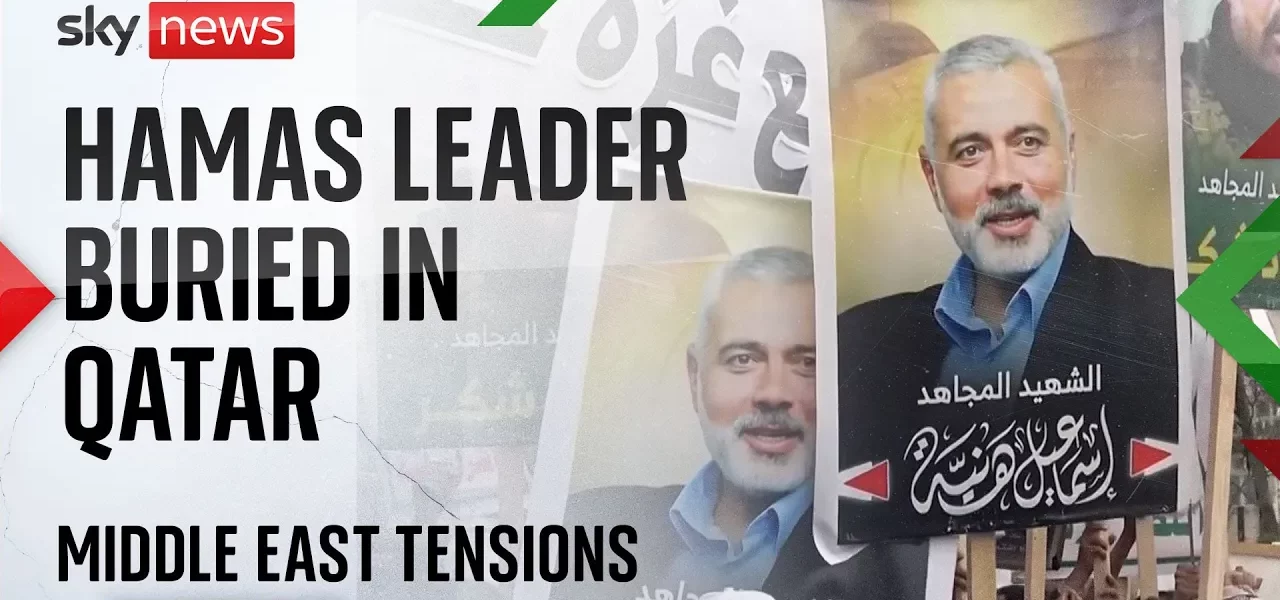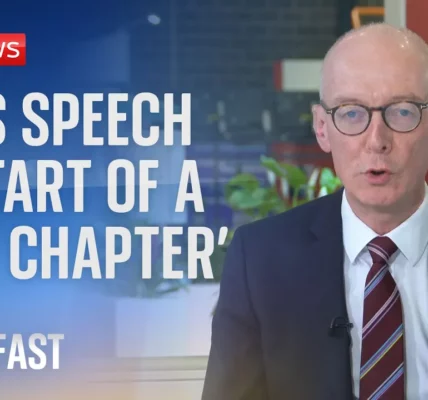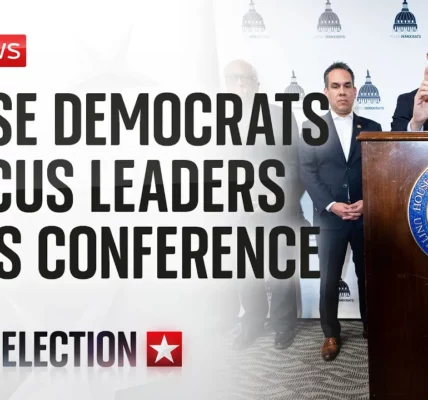Ismael Hani’s Funeral: Implications and Reactions in the Middle East

This article explores the recent funeral of Ismael Hani, a prominent Hamas official, who was buried in Doha amidst significant political tension. We will delve into the reactions from various factions and the broader implications for peace negotiations in the region.
Introduction
The recent death and subsequent funeral of Ismael Hani, a key figure in Hamas and a significant player in ceasefire negotiations, has sparked considerable unrest and debate within the Middle East. Buried in Doha, Qatar, Hani’s funeral was attended by hundreds, including senior Palestinian leaders, highlighting the political weight of his role. His death not only affects the dynamics within Hamas but also poses serious questions about the future of political solutions in the region, including the possibility of a two-state solution.
The Funeral of Ismael Hani
Ismael Hani’s funeral took place at Qatar’s State Grand Mosque, drawing substantial attention from media and political leaders alike. The event was characterized by somber ceremonies and strong expressions of solidarity from various factions.
Attendance and Rituals
Among the attendees were senior Palestinian leaders who came to pay their respects. The traditional Allahu Akbar prayers were held next to Hani’s coffin, along with the casket of his bodyguard, who was also killed in the recent violence. This dual funeral underscores the heightened stakes and the personal toll of the ongoing conflict.
Symbolic Funerals Across the Region
While Hani was buried in Doha, symbolic funerals were held in cities like Beirut and Istanbul. These events were attended by thousands, demonstrating the widespread impact of his death across the Muslim world. In Istanbul, the Turkish Embassy even lowered its flag to half-mast, a gesture that angered the Israeli government.
Political Implications of Hani’s Death
The killing of Ismael Hani represents a significant moment in the ongoing conflict between Hamas and Israel. Hani was viewed by many as a moderate voice within Hamas, advocating for ceasefire negotiations and potential political solutions.
Ceasefire Negotiations at Risk
With Hani’s death, the fragile ceasefire negotiations that he was involved in are now jeopardized. His assassination has not only eliminated a key negotiator but has also removed the possibility of a more favorable truce that might have been negotiated under his guidance.
Hamas’s Response and Calls for Action
In response to Hani’s assassination, Hamas declared a “day of raging anger,” although the anticipated protests did not materialize in the expected scale. However, in the Yemeni capital, tens of thousands took to the streets, indicating that the sentiment of anger is palpable in different regions.
Reactions from Israel and the U.S.
The Israeli government has portrayed Hani as a terrorist, while many in the Muslim community regard him as a martyr and a resistance leader. This divergence in perception highlights the deep divides present in the region. The U.S. has been actively attempting to mediate the situation, with President Biden reportedly expressing concern over the escalation of violence. During a direct meeting with Israeli Prime Minister Benjamin Netanyahu, there were calls for immediate action toward a ceasefire, reflecting Washington’s urgent desire to stabilize the situation.
The Future of Hamas and Regional Stability
The future of Hamas in the wake of Hani’s death remains uncertain. His successor has not yet been determined, and this leadership vacuum could lead to increased instability within the organization and further conflict with Israel.
The Cycle of Violence
Hani’s killing has provided Israel with a short-term victory, but it also raises concerns about a retaliatory cycle of violence. The recent missile strikes by Hezbollah into northern Israel and subsequent Israeli military responses signal that tensions are far from resolved.
Hostage Situations and Broader Implications
The ongoing hostage situations in Gaza complicate any potential for peace. As the political landscape shifts with Hani’s absence, the possibility of both short-term violence and long-term peace solutions will depend on how these hostages are managed and the reactions of various factions involved.
Conclusion
Ismael Hani’s funeral marks a pivotal moment in Middle Eastern politics, highlighting the deep-rooted tensions and the complex interplay of power in the region. As various factions react to his death, the implications for ceasefire negotiations and the potential for a two-state solution become increasingly uncertain. Moving forward, it is crucial for the international community to engage in constructive dialogue to prevent further escalation and to seek a pathway toward lasting peace.
For further insights on the ongoing conflict and potential resolutions, consider reading our related articles on ceasefire negotiations and the two-state solution.
“`




